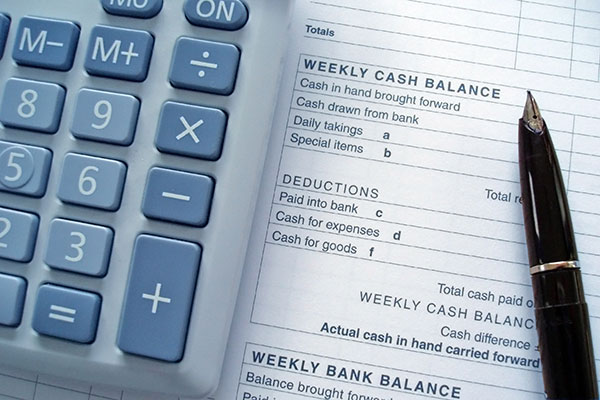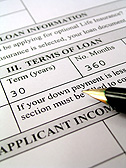Commercial Credit
 The quality of an organisation’s credit is evaluated by examining its capacity and goodwill to reimburse a loan. Basically, the question is: can the company pay and will it pay. Let’s go through the two main criteria of a commercial credit analysis.
The quality of an organisation’s credit is evaluated by examining its capacity and goodwill to reimburse a loan. Basically, the question is: can the company pay and will it pay. Let’s go through the two main criteria of a commercial credit analysis.
Capacity
For companies, lenders evaluate their payment capacity by going through their Financial Statement. Starting with several debt ratios, which compares the liabilities with the assets, they evaluate the level of indebtedness, which gives an idea on the ability to pay future loan. A further analysis of the Financial Statements would be to look at the equity to know how much a company is able to borrow.
Other factors such as profitability and cash flow are criteria to evaluate a business credit.
The profitability of a company is the reason why it exists and why it can stay competitive. Generating important sales but constantly showing low profit or deficit won’t assure its long term survival. Fair profitability is an important aspect when a business searches for credit.
A cash flow evaluation is aiming to isolate “real money” and finding out how a company is able to pay its lenders. For instance, sales do not automatically mean cash in the bank account. Depending on grace days of 30, 60, 90 or even 120, buyers could pay later or sometimes not at all. If we record sales of 1 million in one year as an example, but only $800,000.00 is paid, then you only have $800,000.00 in cash to pay debts.
On the other hand, when evaluating cash flow, amortization and depreciation (equipment devaluation) is added as cash available. Financial Statement processes it as a cost, but in practice, a company is not physically paying for the devaluation of its equipments, it is just an adjustment from the original value.
Goodwill
The goodwill of a company to respect its obligation is evaluated by going through its commercial credit report. The Financial Statement informs on the financial situation of the company, but lack to show if it has some judicial problems or bad relationship with its business partners, which could be a credit risk. For example, a substantial amount of money battled in court or a credit line suddenly cut by a supplier can seriously harm the financial health of the company, and could even push them into bankruptcy.
Like any individual, a company has a credit report where lenders inform the credit bureau on its paying behaviour. It shows how much the company owes to its business partners (trade suppliers and financial suppliers) separated in different periods: current account, first past due period (1 to 30 days late), second past due period (31 to 60 days late) and third past due period (61 to 90 days late). Owing after 90 days is definitely not a good sign.
Other aspects are shown such as bounced checks, judgments, collections and if the company is under the bankruptcy laws. Banking information can also be exposed indicating the balance on lines of credit, term loans, and even the level of satisfaction of the business relationship. All these factors affect the company's credit score on the commercial credit bureau report.
In some cases, businesses have strong Financial Statements, but reveal to be difficult business partners. It is not rare to see businesses financing themselves using the supplier's credit. It is often cheaper than getting financing from banks. Consequently, a company can present a bad commercial credit report because of several late payments, but in fact is using suppliers to pay lower interest. Many corporations use this technique and are not necessarily in danger. The opposite scenario, however, is less likely to happen, because a company in financial distress rarely presents a good credit report.
If a company is a start up, such data are pretty much absent because of lack of references. Since there is a strong correlation between managing a business and personal finances, the evaluation of the company then relies on the personal credit report of the shareholders and / or directors. These individuals will normally be asked to endorse the company; however, with time, it is possible to build a good commercial credit independent from its shareholders and administrators. A solid commercial credit report can remove the individual endorsement condition and therefore allow the shareholders and administrators to free themselves from the faith of the company.
Overall, the commercial credit report comes to complete the financial analysis by exposing the company's behaviour with justice, suppliers and financial business partners. It is a very useful tool to evaluate a business, but the review is not done independently from the Financial Statements.
Try our calculator Commercial Credit Score >
What affects a commercial credit score:
- Time reported on the credit bureau
- Current payments
- Number of references
- Payment indicator compare to the year before
- Numbers of derogatory
- Last derogatory event
- The amount of the derogatory




